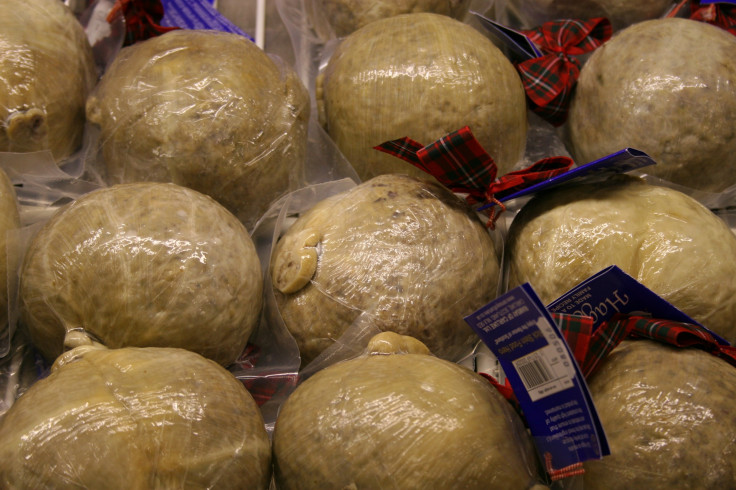Haggis: Scotland’s National Dish Honors Poet Robert Burns, But Banned in The US

Millions of Scots around the world will celebrate the 254th birthday of Scotland’s most beloved poet, Robert Burns, on Friday, by reciting the bard’s famous verses and also consuming vast quantities of whiskey and haggis.
The so-called Burns Suppers and Burns Nights are, of course, highly popular in Scotland and Northern Ireland, but also in New Zealand, which has a significant Scots population.
Haggis, which are typically served with tatties (mashed potatoes) and neeps (turnips) in Scottish meals, is a kind of pudding that comprises offal, namely the heart, liver and lungs of sheep – the most common livestock in Scotland – or sometimes of pigs, mixed with onion, oatmeal, spices, suet and salt.
This heady concoction is then cooked inside a sheep’s stomach (although in modern times, a sausage casing is sometimes used instead).
"Although its description is not immediately appealing, haggis has an excellent nutty texture and delicious savory flavor,” said Larousse Gastronomique, the French bible on food.
Burns himself wrote an ode to the joys of eating haggis in a poem entitled "Address to a Haggis."
Haggis remains a popular dish in Scotland and with the global Scots diaspora.
However, in the United States – which is believed to have at least 6 million people descended directly from Caledonia – the night celebrating bonny Mr. Burns may be somewhat less festive.
For one thing, haggis has been banned for import into the U.S. from the UK since 1971, owing to a prohibition on any food that contains sheep lungs.
In 1989, all British beef and lamb products were banned from the U.S. over fears arising from Bovine spongiform encephalopathy (BSE) – better known as mad cow disease. By 2010, the U.S. Department of Agriculture reinforced the ban of sheep lungs, stating that lungs are inedible.
In response, both the Scottish Rural Affairs Department (SEERAD) and the British Food Standards Agency have repeatedly declared that eating haggis (and sheep’s lungs) is perfectly healthy.
Scotland Rural Affairs Secretary Richard Lochhead has persistently lobbied U.S. officials to reverse its ban on haggis.
“Scotland’s produce is among the best in the world, and I’ve asked U.S. Department of Agriculture officials to come here to see for themselves the high standards we have in animal health and processing,” Lochhead told the International Herald Tribune.
Without the key ingredient of sheep’s lungs, haggis purists assert, it’s not the real thing.
Former President George W. Bush, during a G-8 summit in Gleneagles, Scotland, in 2005, refused to touch a haggis that was offered on a plate.
"Yes, haggis, I was briefed on haggis," Bush sarcastically said.
“Generally, on [my] birthday, my mother used to say: 'What do you want to eat?' and I don't ever remember saying: 'Haggis, mom.'"
Even if the ban on sheep’s lungs was ever lifted, it is doubtful that haggis would find much of a market in the U.S.
Jo MacSween, director of Edinburgh-based Haggis manufacturing firm MacSween, told media: "They [Americans] don't have the same culture of eating offal. In Europe there is respect for the whole animal and nothing should be wasted, in America it's more prime cuts, fillet and sirloin."
© Copyright IBTimes 2024. All rights reserved.





















